 W
WJames Alberione, was an Italian Catholic priest, and the founder of the Society of St. Paul, of the Daughters of St. Paul, of the Pious Disciples of the Divine Master, of the Sisters of Jesus the Good Shepherd, of the Sisters of Mary Queen of the Apostles, and other religious institutes, which form the Pauline Family. The first two groups are best known for promoting the Catholic faith through various forms of modern media.
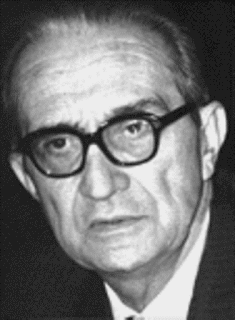 W
WGiulio Carlo Argan was an Italian art historian and politician.
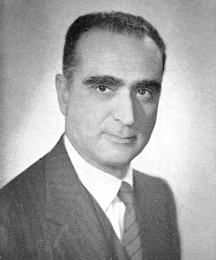 W
WLuigi Barzini Jr. was an Italian journalist, writer and politician most famous for his 1964 book The Italians, delving deeply into the Italian national character and introducing many Anglo-Saxon readers to Italian life and culture.
 W
WSilvio Berlusconi is an Italian media tycoon and politician who served as Prime Minister of Italy in four governments from 1994 to 1995, 2001 to 2006 and 2008 to 2011. He was a member of the Chamber of Deputies from 1994 to 2013 and has served as a Member of the European Parliament (MEP) since 2019, and previously from 1999 to 2001.
 W
WValentino Silvio Bompiani was an Italian publisher, writer and playwright.
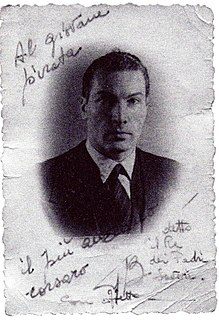 W
WGiovanni Luigi Bonelli was an Italian comic book author and publisher, best remembered as the co-creator of Tex Willer in 1948, together with artist Aurelio Galleppini.
 W
WSergio Bonelli was an Italian comic book writer and publisher. He is best known as creator of Zagor (1961) and Mister No (1975), as well as a comics publisher through the publishing house Sergio Bonelli Editore.
 W
WUrbano Cairo is an Italian businessman and chairman of Torino F.C..
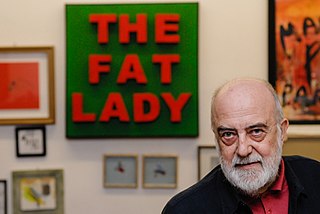 W
WUgo Carrega was an Italian artist and poet. Carrega was one of the main exponents of visual poetry, although he preferred the term "New Writing", an experimental form of writing that combines signs of different extraction. Carrega was active mainly in Milan, where he founded the cultural centers Centro Suolo (1969), Centro Tool (1971), Mercato del Sale (1974) and Euforia Costante (1993). He also founded and directed the art magazines Tool (1965), Bollettino Tool (1968), aaa (1969) and Bollettino da dentro (1972).
 W
WCésar Civita, born Cesare Civita was an American-Argentine publisher, who in 1936 became general manager of Arnoldo Mondadori Editore in Italy. Following passage of the Race Laws in 1938, he emigrated with his family to New York to escape the discriminatory restrictions since they were at risk for being Jewish.
 W
WCarlo De Benedetti is an Italian industrialist, engineer and publisher. He is both an Italian and naturalized Swiss citizen.
 W
WGiulio Einaudi was an Italian book publisher. The eponymous company that he founded in 1933 became "a European wellspring of fine literature, intellectual thought and political theory" and was once considered the most prestigious publishing house in Italy. He was also the author of books on literature, history, philosophy, art and science.
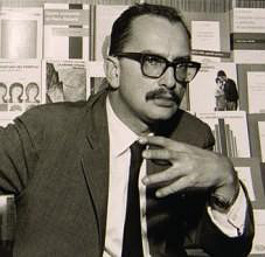 W
WGiangiacomo Feltrinelli was an influential Italian publisher and businessman active following the Second World War. He founded a vast library of documents mainly in the history of international labor and socialist movements. He became a left-wing activist preceding Italy's Years of Lead.
 W
WInge Feltrinelli was a German-born Italian photographer and director, who with her son Carlo ran the Italian publishing house Giangiacomo Feltrinelli Editore.
 W
WArmando Gallo is an Italian journalist, photographer and book publisher.
 W
WGabriele Giolito de' Ferrari was a 16th-century Italian printer active in Venice. He was one of the first major publishers of literature in the vernacular Italian language.
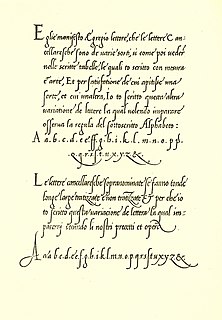 W
WGiovanni Antonio Tagliente was a calligrapher, author, printer and publisher based in Venice during the Renaissance period.
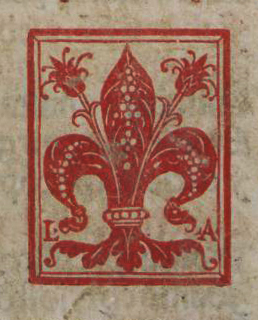 W
WThe Giunti were a Florentine family of printers. The first Giunti press was established in Venice by Lucantonio Giunti, who began printing under his own name in 1489. The press of his brother Filippo Giunti (1450–1517) in Florence, active from 1497, was a leading printing firm in that city from the turn of the sixteenth century. Some thirty members of the family became printers or booksellers. A press was established in Lyon in 1520. By about 1550 there were Giunti bookshops or warehouses in Antwerp, Burgos, Frankfurt, Lisbon, Medina del Campo, Paris, Salamanca and Zaragoza, and agencies in numerous cities of the Italian peninsula, including Bologna, Brescia, Genoa, Livorno, Lucca, Naples, Piacenza, Pisa, Siena and Turin, as well as the islands of Sardinia and Sicily.
 W
WAngela and Luciana Giussani were two Italian sisters, famous for their comic book anti-hero series, Diabolik.
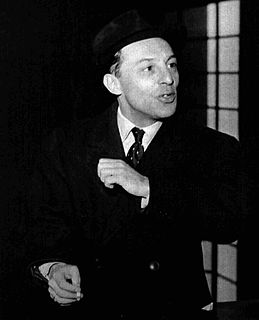 W
WLeopoldo Longanesi was an Italian journalist, publicist, screenplayer, playwright, writer and publisher, famous in his country mostly for the satirical works on Italian society and people. He also founded the eponymous publishing house in Milan in 1946 and was a mentor-like figure for the most famous Indro Montanelli, journalist and historian, founder of Il Giornale, one of the Italian biggest newspaper.
 W
WAnselmo Lorecchio was an Italian lawyer, journalist, politician, poet and writer of Albanian descent, founder of the La Nazione Albanese newspaper, and author of several literary works in praise of the independence of Albania.
 W
WLucantonio Giunti or Giunta was a Florentine book publisher and printer, active in Venice from 1489, a member of the Giunti family of printers. His publishing business was successful, and among the most important in the late fifteenth and early sixteenth centuries. Through partnerships, often with members of his family, he expanded the business through much of Europe. At about the time of his death in 1538 there were Giunti presses in Florence and Lyon, Giunti bookshops or warehouses in Antwerp, Burgos, Frankfurt, Lisbon, Medina del Campo, Paris, Salamanca and Zaragoza, and agencies in numerous cities of the Italian peninsula, including Bologna, Brescia, Genoa, Livorno, Lucca, Naples, Piacenza, Pisa, Rome, Siena and Turin, as well as the islands of Sardinia and Sicily.
 W
WMaria Majocchi, also spelled Maiocchi, was an Italian writer, journalist, and publisher. She wrote under several Pseudonyms, the most common being Jolanda, Viola d'Alba, and Margheritina di Cento.
 W
WAldus Pius Manutius was an Italian humanist, scholar, educator, and the founder of the Aldine Press. Manutius devoted the later part of his life to publishing and disseminating rare texts. His interest in and preservation of Greek manuscripts mark him as an innovative publisher of his age dedicated to the editions he produced. His enchiridia, small portable books, revolutionized personal reading and are the predecessor of the modern paperback.
 W
WPaulus Manutius was a Venetian printer with a humanist education, the third son of the famous printer Aldus Manutius and his wife Maria Torresano.
 W
WGianni Minà is an Italian journalist, writer, magazine editor and television host. He has collaborated with both Italian and International newspapers and magazines; produced hundreds of reports for RAI ; conceived and hosted television programs, as well as produced successful documentary films on the lives of Che Guevara, Muhammad Ali, Fidel Castro, Rigoberta Menchú, Silvia Baraldini, Subcomandante Marcos and Diego Maradona.
 W
WAntonio "Toni" Negri is an Italian Spinozistic-Marxist sociologist and political philosopher, best known for his co-authorship of Empire and secondarily for his work on Spinoza.
 W
WGirolamo de Rada was an Arbëreshë folklorist, journalist, lawyer, playwright, poet, rilindas and writer. He is regarded as one of the most influential Albanian writers of the 19th century who played an essential role in the Albanian Renaissance.
 W
WFranco Maria Ricci was an Italian art publisher and magazine editor. Amongst his publications is FMR, a Milan-based bi-monthly art magazine published in Italian, English, German, French, and Spanish for over 27 years. Ricci is known for having created limited editions honoring particular independent artists, which are characterized by their tinted handmade paper, and black silk-bound hardcovers with silver or gold lettering stamping. He sold his publishing house, Ricci Editore, to Marilena Ferrari in 2007 only to regain control in 2015.
 W
WAngelo Rizzoli, OML was an Italian publisher and film producer.
 W
WPaolo Romani is an Italian politician, publisher, journalist and former minister of economic development.
 W
WGiovanni Giacomo de Rossi was an Italian engraver and printer, active in Rome in the second half of the 17th century.
 W
WGiulio Savelli was an Italian politician and publisher.
 W
WThe International Society for the Study of Medieval Latin Culture is an Italian non-profit cultural institute, based in Florence. It promotes multi-disciplinary research into the history, art, literature and philology of the medieval Latin era.
 W
WEdoardo Sonzogno was an Italian publisher.
 W
WLuigi Veronelli was an Italian gastronome, wine critic and intellectual. He is remembered as one of the central activists in the appreciation and promotion of Italy's enological and gastronomic heritage. Veronelli was the first to express views that would later achieve general currency and the protagonist in battles for the preservation of diversity in the fields of agriculture and food production. To this end he contributed to the development of Italian appellations of origin, fought alongside local administrations and offered his support to retail producers.